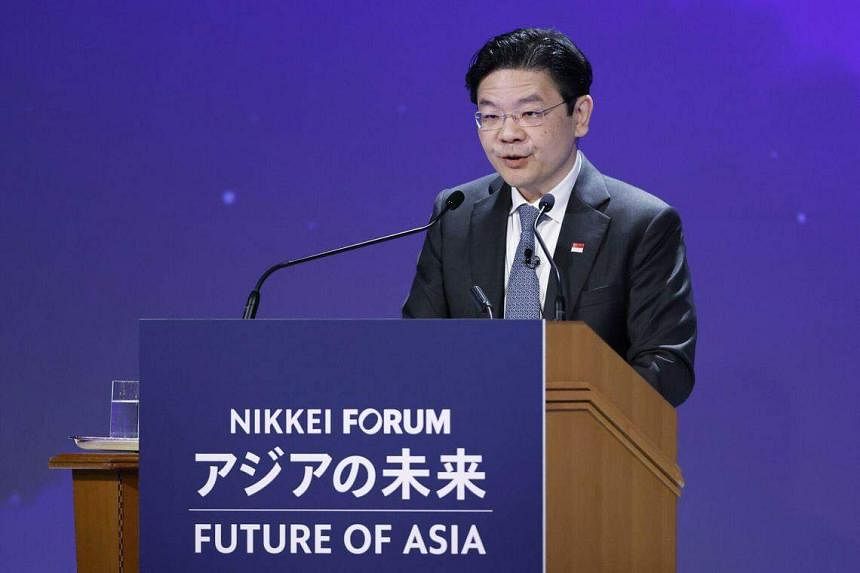TOKYO - It will take time to persuade major powers that “de-risking” in global trade comes with the same risks as decoupling. But it is important that those who worry about its unintended consequences, like Singapore, speak up, said Deputy Prime Minister Lawrence Wong.
And he believes that the message does land.
“Whether or not countries are receptive to the message, well, I think they understand the logic and the risk,” he said on Friday.
“But it’s not going to be possible to persuade everyone overnight. Still, it’s important that we speak up, we highlight our stance, our approach and our concerns about where we see the world heading. And we should also encourage others who have similar views to speak up.”
Mr Wong was speaking to the Singapore media at the end of his official trip to Tokyo, where he had delivered a pointed speech at a conference on how de-risking could just as well lead to a polarised world economy. During his visit, he also met Japan’s political and business leaders.
Asked how his message was received during the meetings, Mr Wong responded first by saying that “it’s good that the language has shifted because it used to be ‘decoupling’.”
The Group of Seven (G-7) leaders’ statement in Hiroshima last week – Japan was the host – described de-risking as reducing “excessive dependencies” in critical supply chains, as opposed to “decoupling” that has traditionally referred to a hard split.
But he cautioned that it remains unclear “what form de-risking will take, what exactly that means”.
“And we think if there are other parties with equal concerns, it’s important that we speak out and share these concerns. Because ultimately... it is really a choice and on Singapore’s part, the choice is very clear.”
Singapore will always choose multilateralism, said Mr Wong, who is also Finance Minister.
This is why, he added, it is in the Republic’s interests to “work with other like-minded countries who, similarly like us, want to choose multilateralism to strengthen the rules-based order and to strengthen multilateral institutions”.
These include the World Trade Organisation, the International Monetary Fund, and the World Bank.
Even as the great power rivalry between the United States and China looms large in the world, Mr Wong saw the Sino-Japan relationship – and the US-China-Japan relationship – as key to regional stability.
“The triangular relationship between US, China and Japan has traditionally been a tripod of stability for the region, and this triangular relationship remains important today,” he said.
Mr Wong, who was in China for an official visit from May 13 to 17, noted that China and Japan, as Asia’s two largest economies, can be a ballast for regional security.
This is despite their “complex and intertwined relationship” that has led to many issues that cannot be easily resolved.
“Notwithstanding the history, notwithstanding these outstanding issues, I think both countries understand the benefits of cooperation and do not want confrontation,” he said, encouraging more high-level visits and exchanges between both countries.
“It’s good that Japan appreciates and understands the merits of engaging China for its own merits, and not through the lens of the US-China rivalry,” he said. “And I believe China feels the same way too.”


